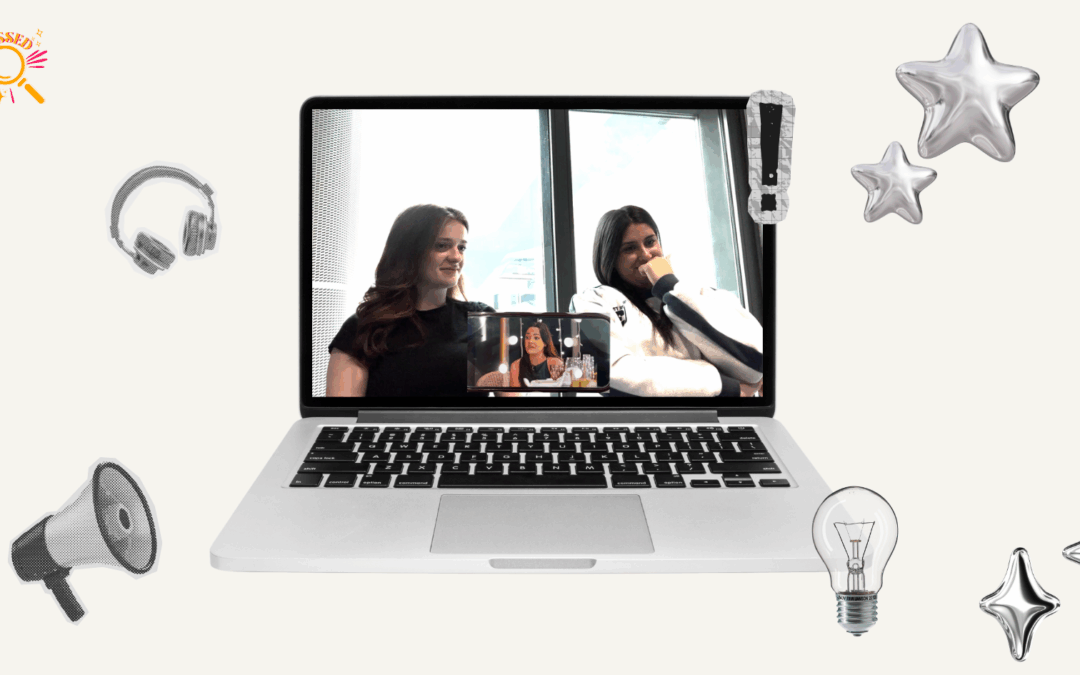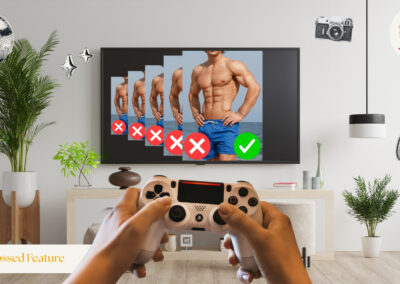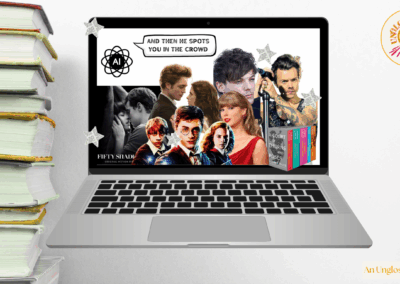What began as Bentham’s blueprint for control now lives on in the Big Brother reality TV show. It may look like entertainment, but beneath the surface, surveillance is more than just a spectacle, it shapes how we act, who we are, and who’s in control.
Historically, surveillance has been used as a tool for power and control. But Big Brother, aptly named after the omnipresent, totalitarian figurehead in George Orwell’s 1984, has managed to subvert this notion by repackaging it as entertainment in the form of a reality game show. ‘Housemates’ willingly volunteer to be under 24 hour surveillance as they observe, critique and eventually ‘evict’ fellow contestants until the last one standing. While Big Brother might use CCTV cameras to watch every waking move of contestants, back in the 18th century, an English philosopher named Jeremy Bentham would design a structure that served exactly the same function – but for prisons.
The panopticon penitentiary, derived from the Greek word pan meaning ‘all’ and optic meaning ‘seeing’, was a circular shaped building where prison cells would line the perimeter and guards would stand in a central ‘surveillance corridor’, observing the inmates through windows obscured by blinds. This design allowed the guards to see the prisoners without the prisoners being able to see the guards.
French philosopher, Michel Foucault, later theorised that by putting prisoners in a constant state of believing that they were being watched, they would internalise this feeling and self regulate, eventually policing their own behaviour.
As Dr Tim Causer, principal research fellow for the Bentham Project at UCL, explains: “This is what Bentham called the ‘central inspection principle’, this idea that the prisoners didn’t know when they were being watched but just had to assume that they were because if they assumed wrongly and were caught, they would be punished.”
Today, neuroscience gives us insight into what happens in the brain when we’re being watched and how it changes our behaviour.
According to Dr Antonia Hamilton, Professor of Social Neuroscience at UCL and author of paper ‘Being watched: Effects of an audience on eye gaze and prosocial behaviour’, the experience of being watched has notable effects on the brain: “There’s a general idea that being watched activates your frontal cortex, engages your sense of self and how you are being perceived by others.
“In some ways, that would be a positive change in the sense that people might be more social, but it can also be quite stressful for the people being watched because they’re continually having to do this extra co-processing of thinking about how other people are judging them.”
For Nathan King, Big Brother 2024 finalist, he found the 24 hour camera surveillance to be a big adjustment during his first week in the house. “There were cameras everywhere – the same ones you see on the telly – even in the toilets.
“The first day I went in I was hyper aware, and then the first week I was there I was really, really aware. I just couldn’t quite get used to it.”
Over time, Nathan coped with this hyperawareness by mentally tuning out from the cameras altogether.
“I didn’t look at the camera and associate 2 million people watching at home, I just couldn’t quite make that connection,” he said. “So I acted as I normally would – to my detriment at times.”
However, like the prisoners policing their own behaviour, Nathan commented on how he still found himself filtering his remarks: “I have quite a dark sense of humour, I make no secret of that. And there would be times where something would nearly come out of my mind and I would be like ‘oh, maybe better not to say that’”.
Numerous studies have also found that the feeling of being watched encourages people to actively engage in prosocial behaviour, adds Dr Hamilton: “As soon as you’re looking at prosocial tasks or things where you’re showing off about your character, there’s a consistent effect in the sense that everybody will donate more money, be nicer, be kinder, and be more social when they’re being watched.”
Dr Hamilton explains that people generally care about their reputation and want to look like they’re being “helpful” and “good”. She continues: “Certainly people do a bunch of very sophisticated calculations along the lines of being prosocial and doing something nice for other people.”
Interestingly, Dr Hamilton also considers the concept of ‘costly punishment’ to be a prosocial behaviour. This is when someone has done something wrong and people make an effort to ‘punish’ them to enforce the rules of the group.
Nathan found this to be the case in the house where people ‘took the moral high ground’ in arguments.
He found it “extremely frustrating” at times saying: “People felt that they had to respond and had to react, or in some cases, manipulated it in a way to take the moral high ground for the purposes of ‘right, this’ll look great this’ll look perfectly on me’.
“People were grasping at every opportunity to make themselves look like a good guy or a good girl. They were on it all the time.”
This behavior also aligns with what’s known as the ‘audience effect’, a psychological phenomenon where someone changes their behavior because they know they’re being observed by others. In the Big Brother house, the audience wasn’t just the public watching from home, but also fellow housemates who became both spectators and judges. Contestants weren’t only performing for the cameras, but also for each other, constantly assessing how to be perceived in the best light in order to survive another round of evictions.
But while prisoners adjusted their behaviour to avoid punishment, Nathan assumes that contestants mainly did it to enhance their marketability. He estimates there were about “half a dozen who had one eye on the future”.
Big Brother then shifts surveillance from a threat to a commercial opportunity for volunteering contestants. With the cameras always in eye view, housemates could present their best selves, polishing their personalities into brands and commodifying them for potential career prospects beyond the Big Brother house.
As a result of this, Nathan felt more like a prop than a housemate, a means for others to perform their moral personas for the cameras. He said: “I felt like when they were speaking to me, they weren’t speaking to me - they were speaking past me. They weren’t interested in my response or what I had to say. They weren’t talking to me, they were talking at me and talking at the 2 million people watching.
“That honestly infuriated me and it kind of saddened me because I thought ‘I bloody hope people on the outside are seeing what I’m seeing’ and in a lot of the cases they didn’t.
“I thought, I’m not here for an advert for the future. I’m living with you people for six weeks, can’t we just say what we really think? Rather than what is ‘right’ perceived?”
Despite these carefully curated personas, no matter how hard contestants tried to present their public image for the cameras, it was ultimately down to the edit. Just as prisoners in the panopticon didn’t know when they were being watched, housemates couldn’t predict which moments from their 24-hour day would be selected for the hour-long programme for the general public to scrutinise.
Nathan notes that everyone struggled at some point since coming out of the house because of how things were portrayed, with the reactions from the public only adding fuel to the fire. He estimates about 70% of the footage reflected his actual experience, but the remaining 30% usually included the parts that “stitched somebody right up and had severe consequences.”
This was the panopticon’s ultimate function according to Foucault; asymmetric surveillance as a means of asserting power and control. While contestants may have believed they had agency over their own narratives, they were always at the mercy of the producers.
“I found that when I watched it back I thought, ‘that’s not how I remember that happening’,” Nathan said. “And then you obviously go and read online about it and what people have said about it – and it’s awful.”
Fortunately, the panopticon prison was never built, says Dr Causer: “I’m from a personal view, who studies Bentham on a day to day basis, very glad it wasn’t built because I think it would have been a disaster for the prisoners.”
“Bentham’s idea has been criticised by some as a form of totalitarianism and total lack of human dignity.”
Yet, one could argue that in many ways it didn’t need to be. The panopticon prison’s power came from not the architecture but the psychology, from the idea that someone might be watching. Surveillance no longer requires elaborate architectural designs, it operates seamlessly through everyday life in the form of social media platforms, CCTV networks and data-tracking algorithms.
“There’s all sorts of things done by capitalist societies to discipline and subdue its citizens,” Dr Causer adds. “Bentham may be flattered in some respects that his idea is still relevant and reinterpreted today.”
And while Big Brother might be just a reality show, it parodies the deeper realities of our surveillance culture. The house may be a stage but the dynamics within it echo far beyond its walls.
Nathan may have left the Big Brother house, but he hasn’t left the panopticon. The cameras have been replaced by smartphones, the producers by followers and while the storyline is now his to curate, he is always under the ever-watchful eye of the audience.










